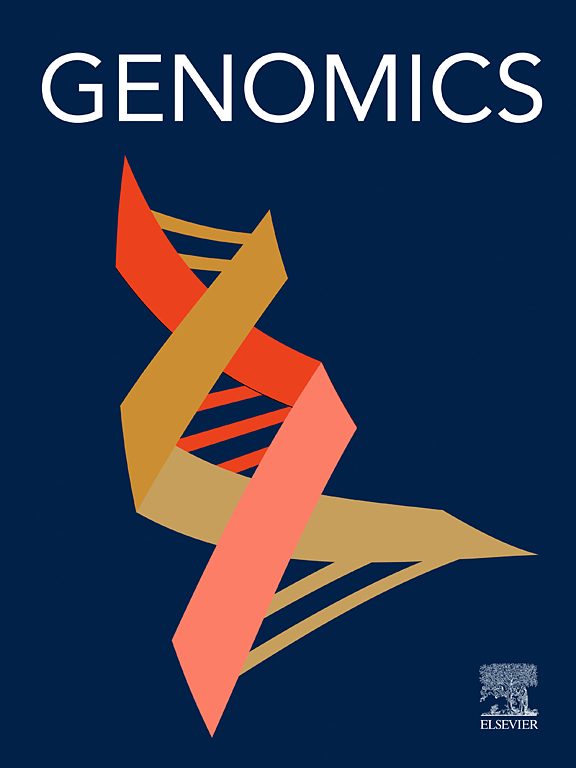Transcriptome analysis reveals that defects in cell cycle regulation contribute to preimplantation embryo arrest
IF 3
2区 生物学
Q2 BIOTECHNOLOGY & APPLIED MICROBIOLOGY
引用次数: 0
Abstract
Patients with preimplantation embryo arrest (PREMBA) often experience assisted reproductive failure primarily due to the lack of transferable embryos, and the molecular mechanisms underlying PREMBA remain unclear. In our study, the embryos from five women with recurrent preimplantation embryo arrest and three women with tubal factor infertility were used for single-embryo transcriptome sequencing. Meanwhile, the transcriptomes of normal human preimplantation embryos obtained from GSE36552 were utilized to perform a comparative analysis with the transcriptomes of PREMBA embryos. Our results showed dysregulation of the cell cycle phase transition might be a potential pathogenic factor contributing to PREMBA. Through integrated analysis of the differentially expressed genes (DEGs) and weighted gene co-expression network analysis (WGCNA), we identified a number of hub genes using the protein-protein interaction network. The top 5 hub genes were as follows: CCNB2, BUB1B, CDC25A, CCNB3, and PLK3. The expression of hub genes was validated in PREMBA embryos and donated embryos using RT-qPCR. The knockdown of Ccnb2 in mouse zygotes led to an increase in embryo fragmentation, a rise in apoptosis, and a reduction in blastocyst formation. Furthermore, silencing the expression of CDC25A in HEK293T cells resulted in a decrease in cell proliferation and an increase in apoptosis, providing further support for our findings. Our findings could predict the development outcomes of preimplantation embryos and be used as potential therapeutic targets to prevent recurrent failures of IVF/ICSI attempts.
转录组分析表明,细胞周期调控缺陷导致植入前胚胎停育。
着床前胚胎停育(PREMBA)患者通常会因缺乏可移植胚胎而导致辅助生殖失败,而着床前胚胎停育的分子机制尚不清楚。在我们的研究中,我们对五名复发性植入前胚胎停育妇女和三名输卵管因素不孕妇女的胚胎进行了单胚胎转录组测序。同时,利用从 GSE36552 中获得的正常人类植入前胚胎的转录组与 PREMBA 胚胎的转录组进行比较分析。结果表明,细胞周期相变失调可能是导致 PREMBA 的潜在致病因素。通过对差异表达基因(DEGs)和加权基因共表达网络分析(WGCNA)的综合分析,我们利用蛋白相互作用网络确定了一些中心基因。前 5 个中心基因如下:CCNB2、BUB1B、CDC25A、CCNB3 和 PLK3。在 PREMBA 胚胎和捐献胚胎中使用 RT-qPCR 验证了中心基因的表达。在小鼠胚胎中敲除 Ccnb2 会导致胚胎碎片增加、细胞凋亡增加和囊胚形成减少。此外,在 HEK293T 细胞中沉默 CDC25A 的表达会导致细胞增殖减少、凋亡增加,从而进一步证实了我们的发现。我们的研究结果可以预测植入前胚胎的发育结果,并可作为潜在的治疗靶点,防止试管婴儿/卵胞浆内单精子显微注射失败。
本文章由计算机程序翻译,如有差异,请以英文原文为准。
求助全文
约1分钟内获得全文
求助全文
来源期刊

Genomics
生物-生物工程与应用微生物
CiteScore
9.60
自引率
2.30%
发文量
260
审稿时长
60 days
期刊介绍:
Genomics is a forum for describing the development of genome-scale technologies and their application to all areas of biological investigation.
As a journal that has evolved with the field that carries its name, Genomics focuses on the development and application of cutting-edge methods, addressing fundamental questions with potential interest to a wide audience. Our aim is to publish the highest quality research and to provide authors with rapid, fair and accurate review and publication of manuscripts falling within our scope.
 求助内容:
求助内容: 应助结果提醒方式:
应助结果提醒方式:


